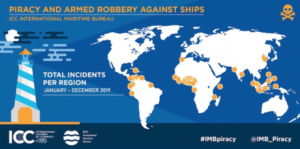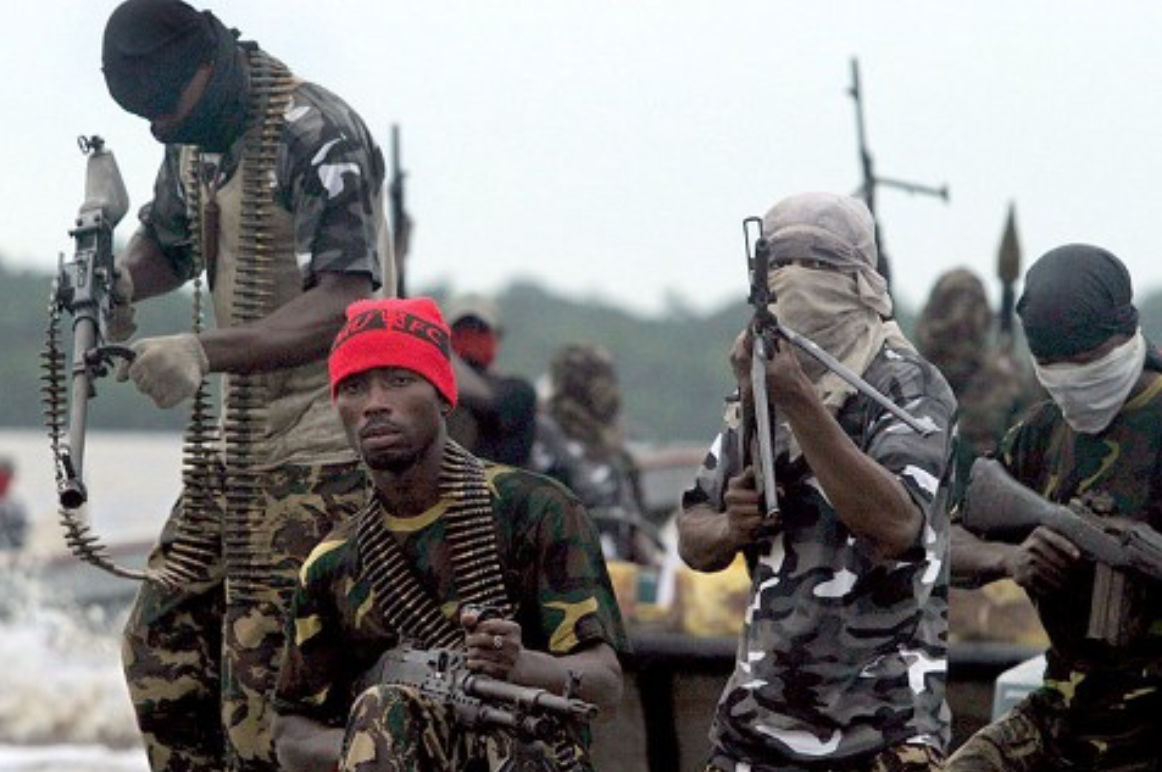Piracy Continues to Plague the Shipping Industry
The recently released annual report of the International Maritime Bureau highlights the continuing scourge of maritime piracy in the shipping industry and the complicit inaction of regional governments, particularly in the Gulf of Guinea. While piracy is trending downwards worldwide, it is accelerating in the Gulf of Guinea with the brazen armed robbery and the kidnap of seafarers for ransom, a recent incident of which has resulted in a seafarer’s death.
The IMB received reports of 162 incidents in 2019, down from 201 in 2018. The incidents included four hijacked vessels, 11 vessels fired upon, 17 attempted attacks, and 130 vessels boarded. However, crew kidnappings in the Gulf of Guinea increased from 78 in 2018 to 121 in 2019, representing around 90% of all crew kidnappings globally for the year.
The Singapore Straits with a multitude of vulnerable slow-moving heavily laden vessels in congested waters saw an upsurge in armed robberies with 11 reported incidents in Q4 (30 for the year) following only three incidents for the whole of 2018, due in no small part to the efforts of the Republic of Singapore Navy (RSN). However, on 20 December alone, three incidents were reported, two involving bulk carriers and one involving a tanker with two further attacks on December 23, a tanker and a bulk carrier, then another involving a tanker on December 25.
Perhaps the most well-known region for piracy, the Indian Ocean off the coast of Somalia, saw a quiet year but the risk remains as evidenced by an attack on a chemical tanker in October 2018. As most observers are aware, it required an international naval effort, the deployment of teams of armed guards on merchant vessels and a degree of land-based political stabilization to finally quell Somali piracy.
Regretfully the lessons learned have not been applied to West Africa, on the contrary, those governments do not permit the employment of armed guards. For example, within the territorial waters of Nigeria, long a hotbed of piracy, licensed private guards cannot carry firearms. Likewise, although the Nigerian Maritime Administration and Safety Agency’s mandate includes maritime security, it’s members cannot carry arms and must rely on the Nigerian Navy under an inter-agency collaboration agreement. The bottom line is that the governments bordering the Gulf of Guinea, many of which are fighting their own land-based insurgencies, do not permit merchant ships to carry firearms and insist that only they have the authority to provide armed protection – something they have spectacularly failed to do.
BIMCO has more than once called for international naval patrols to intervene to become involved in the protection of ships in these waters but to date, there has been no indication of a willingness to take action. Seafarers are therefore left to the mercy of ruthless pirates.

Following an attack on the tanker MT Duke on December 15, 2019, while on passage from Luanda to Lomé, 20 Indian seafarers were kidnapped leaving one, a Nigerian onboard. Following payment of a ransom, 19 seafarers were released in January this year, one having died in captivity. A similar incident involved the tanker Nave Constellation on December 4. The vessel was boarded and four seafarers kidnapped, three of whom were eventually released with the fourth dying in captivity.
So why is piracy so bad off West Africa in the Gulf of Guinea, a 6,000 km stretch of coastline comprising Senegal, Nigeria, Benin, Ghana, Cote d’Ivoire, Guinea, Togo and Sierra Leone? Sadly, it is a function of political and business corruption, weak law enforcement and generally poor economies leaving million without work, hope or basic sustenance. The rise of so-called petro-piracy against tankers off the coasts of Nigeria, Benin, Ghana, Cote d’Ivoire, Guinea, Togo and Sierra Leone is ironic given the revenues generated by national oil and gas industries. Unfortunately, the benefits of energy sales do not filter down to the masses with even traditional lawful fishermen now cashing in on the easy money to be made from kidnapping and ransoms. Poverty driven petro-piracy has been estimated to cost Nigeria alone more than $200 billion annually.
Unfortunately, the world’s reliance on unfettered global trade has not thus far persuaded national governments that a combined security effort is required. So long as this continues, seafarers who in reality have no say in where their ships trade, will continue to be left to their fate, unpleasant as that sometimes turns out to be.

